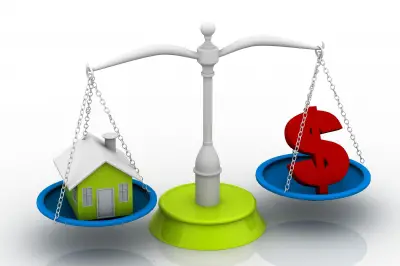Buying a home and getting a mortgage can be difficult when you are in debt. But you still have options available to you. Obtaining a home loan can be more difficult than it was just five years ago. With stricter rules in place, you may find it hard to imagine winning over a lender, especially if you’re saddled with substantial debt. But fortunately, you can start improving your credit score and reducing your debt today, putting yourself in a position to buy a wonderful home for your family.
Depending on the extent of your debt, you may even be able to purchase a home in as little as six months to a year! Below, we present some practical tips for managing your credit score and debt when you’re planning to buy a home.
Consider Your Home Loan Options.
For most home loans, you need to have enough money to pay at 20 percent as a down payment. If you can work to save for that kind of down payment, great. It may help you secure more favorable terms down the road. However, if you can’t afford a 20 percent down payment, you still have options. For instance, apply for FHA loan approval, as this option has helped many first-time homebuyers purchase a home with little to no money upfront.
An FHA loan can require as little as 3.5% downpayment but you will be required to pay an “insurance premium” in addition to the regular interest and principal on the loan. So although your payments may be a little higher you will be able to get into your dream home sooner than you would if you had to save up the full 20%.
An experienced real estate agent can help you throughout the entire home buying process, including choosing the right loan, finding the perfect home, and negotiating the purchase price. Considering the time, energy, and stress it can save, hiring an agent is one of the best moves you can make.
See: Quick Guide To The Secrets Of FHA Loans
Check Your Credit.
When it comes to improving a mediocre or poor credit score, the first step is to get copies of your free credit reports from Equifax, Experian, and TransUnion. Then, you want to assess each report and challenge any discrepancies between them so that they are corrected. Knowing your score will help you better determine what action is necessary to right the ship.
Be a Good Renter.
If you’re currently renting a home, you can boost your credit by paying on time each month. As you build or maintain a strong rental history, you can use it as a credit reference when you apply for a mortgage. Make your payments with a debit card or check so that proof of payments can easily be obtained from your bank. Moreover, avoid moving from apartment to apartment if possible; lenders like to see consistency, and it will benefit your credit report.
Use Automation.
Missed payments will most likely show up on your credit report and negatively impact your credit score. The easiest way to prevent this from happening is to set up all of your bills and debts to be automatically withdrawn.
Make a Budget.
Cutting spending is the most practical way to get out of debt. If you haven’t created a detailed budget that leaves you with more income than expenses at the end of each month, start making one immediately. This might involve avoiding credit cards altogether and cutting some non-essential costs like entertainment subscriptions, dining out, and club memberships.
Once you have a budget in place, you can start attacking your debt. Start by paying off the debts that come with the highest interest rates, and work your way down from there. And anytime you’re able to, pay more than the minimum amount.
Buying a home when you are in debt can be challenging. However, it’s not impossible. Remember to research all the available home loan options, and check your credit score to get a reference point for your debt-eliminating strategy. Also, be diligent about paying rent, automate your bill payments, and create a realistic budget that you can stick to. While there are other steps you can take to improve your credit and reduce your debt, following these tips will help you get on the right track to homeownership.
You might also like:
- Advice on What to Expect When Buying a Home
- How to Help Your Children Afford Their First Home
- Top 5 Home Upgrades and Repairs Worth Your Money
- How To Negotiate When Buying a Home
- What Types of Financial Assistance Are Available for First-Time Homebuyers?
- Is an FHA Loan Right for You?
- How Your Credit Score Affects You and Your Family
- The Average Mortgage Credit Score Is 754: How to Make Sure Yours Is Good Enough
- How to Check Your Credit Score Before Applying for a Mortgage
- 5 Essential Tips for Managing Your Credit Score
- Key Factors in Getting a Mortgage


